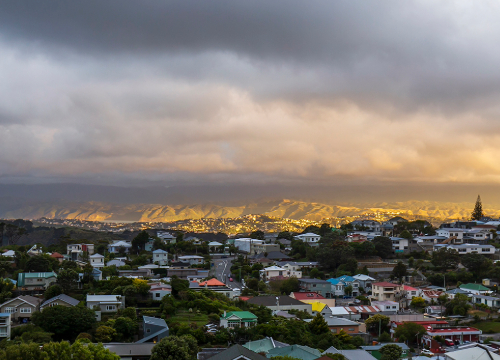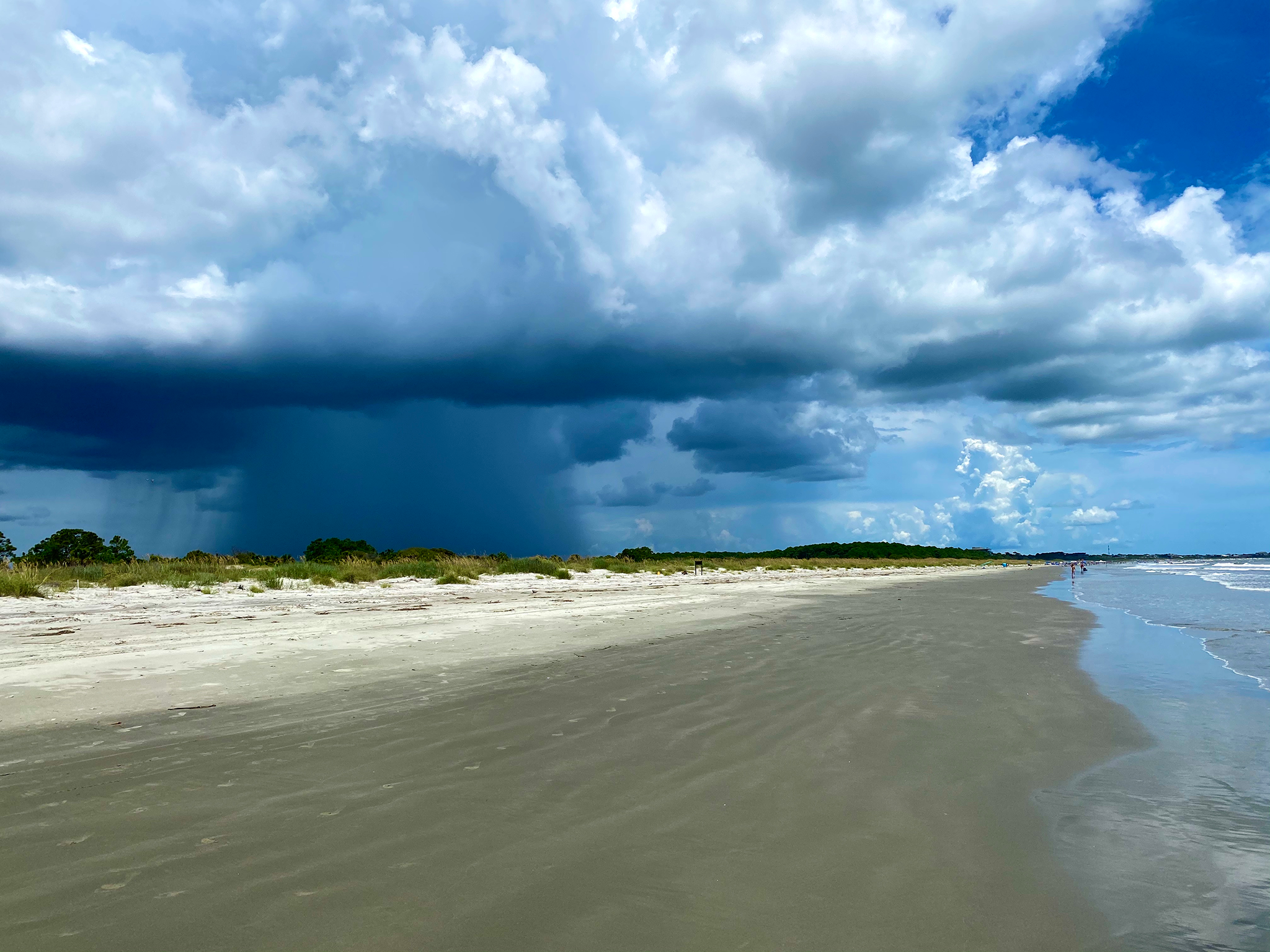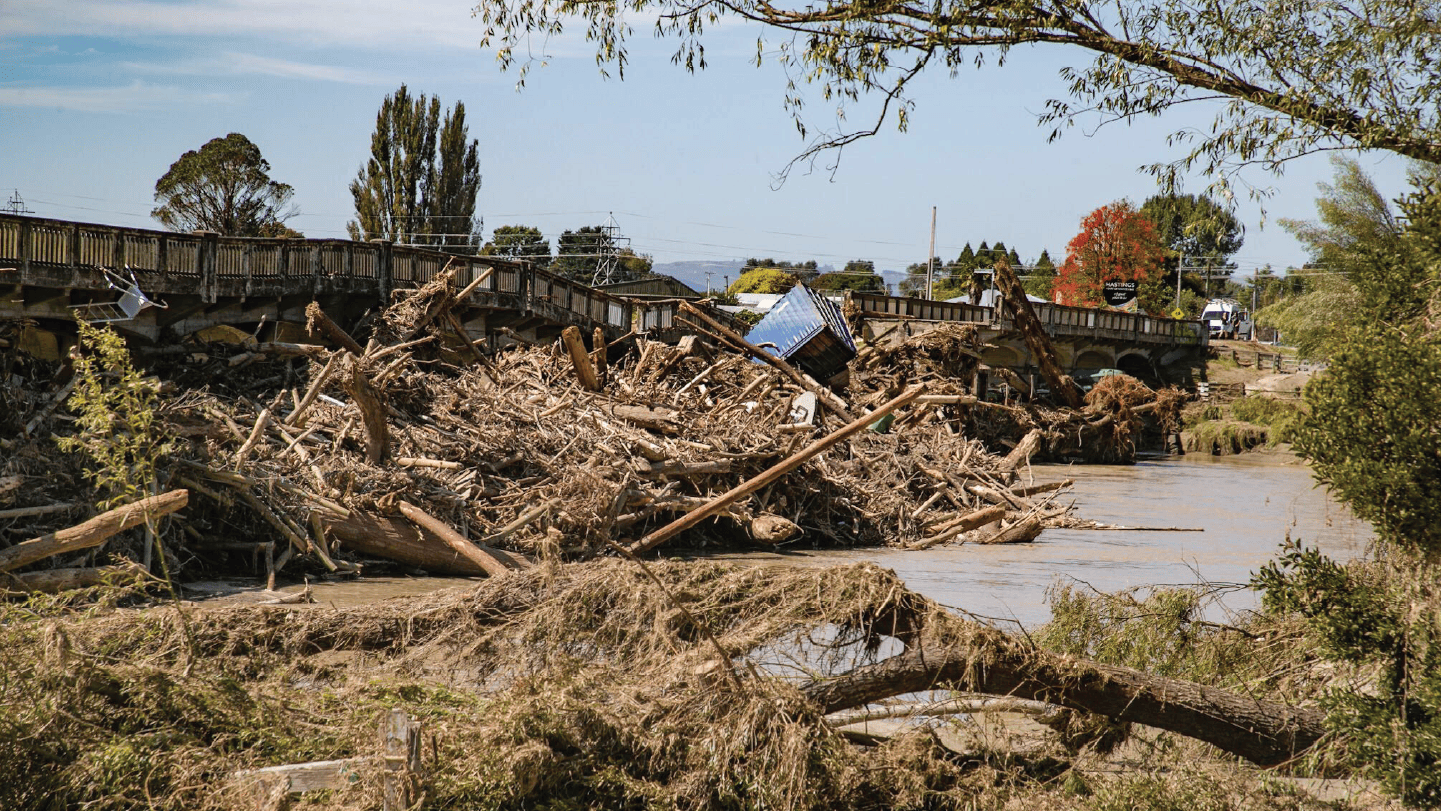Summer of storms leads to massive 402% spike in insurance claims
New Zealand’s stormy summer resulted in five times more insurance claims than last year, AMI, State and NZI Insurance reveal in the new Wild Weather Tracker, released today.
The Tracker, which records six-monthly weather-related claims data, shows the country’s largest insurer received 41,596 weather claims between 1 September 2022 and 28 February 2023 compared to 8,293 weather claims for the same time last year.
Of those claims, 23,497 were for the North Island floods and 14,396 were for Cyclone Gabrielle.
But claims from those two storms have continued to climb. As of 2 May, AMI, State and NZI customers have lodged 25,000 claims for the North Island floods and 21,000 for Cyclone Gabrielle.
Amanda Whiting, CEO of AMI, State and NZI says, “Those two events alone have generated more weather-related claims than what we received for the whole country, for the previous two and a half years. The impact these storms have had on our country is profound.”
Public sentiment changes post-storms
A nationwide survey run in conjunction with the Tracker, also released today, shows New Zealanders’ levels of concern about weather events are at record highs, jumping from 45% concern before the storms to 83% after.
Those in the upper North Island had the biggest spike in levels of concern, increasing from 44% pre-storms to 86% post-storms, closely followed by those in the lower North Island, who went from 46% to 86%.
However, only 64% of people in the upper North Island and 35% of those in the lower North Island prepared for either storm, despite weather warnings.
Of those who didn’t prepare, most said it was either because they didn’t think they’d be affected, or the events weren’t in their area.
Mrs Whiting says, “What we saw this summer was a stark reminder that storms are traumatising events that put people’s lives at risk.
“However, the survey gave a sense that people felt they wouldn’t personally be impacted, which - as we can see from the claims numbers - is simply not true.
“These events are not only becoming more frequent, but they are also impacting more people, some repeatedly, and the level of property damage is significant. Clearly, our climate is changing, and our future weather patterns will be different to what we have seen in the past.”
Change urgently needed
AMI, State and NZI Insurance presented a three-step plan to Government in August last year, calling for urgent action to keep people safe from the impacts of a changing climate.
“That plan is more relevant than ever,” says Mrs Whiting.
“It’s important to identify the most flood-prone locations across New Zealand, agree to stop building in these places, and to invest in flood protection infrastructure.
“The events of the summer dramatically emphasise what we all knew from the recent flooding in Nelson, Westport and Tairāwhiti - that it is vital we make more progress in this work to keep people and communities safe.
“Inaction won’t just result in higher insurance costs, but in the further loss of lives and livelihoods and in the fear and trauma of loss in communities across the country.
“We want to keep insurance available and affordable for all. But ultimately, we need to reduce the risk and impact of flooding. We are actively working with government and other key stakeholders, and we are ready to play our part.
“In the meantime, we will continue to support our customers by working through the huge volume of claims from this summer’s events. We are moving at pace, but some claims are complex to resolve, especially where there has been extensive land damage, as these are often reliant on the involvement of a range of technical experts and councils.”
Key findings from the Wild Weather Tracker:
- 41,596 weather-related claims (1 September 2022 – 28 February 2023)
- 402% increase in claims, when compared to the prior comparable period (8,293 claims)
- 10 storms
North Island floods & Cyclone Gabrielle:
- Claim numbers for the North Island floods: 25,000 (as of 2 May)
- Claim numbers for Cyclone Gabrielle: 21,000 (as of 2 May)
- We received more claims for the North Island floods and Cyclone Gabrielle than all weather-related claims we received for the whole of New Zealand, for the previous two and a half years.
- We received almost twice as many claims for the North Island floods than for any other singular storm event.
- Regionally:
- We have received more claims in Auckland for the floods and Cyclone Gabrielle than all other weather-related claims we received in Auckland in the past decade.
- We have received more claims in Gisborne for Cyclone Gabrielle than all other weather-related claims we received in Gisborne in the past nine years.
- We have received more claims in Hawke’s Bay for Cyclone Gabrielle than all other weather-related claims we received in Hawke’s Bay in the past decade.
Nationwide poll results:
- 89% of New Zealanders believe wild weather is increasing in frequency and severity
- 76% agree climate change is a key contributor to wild weather
- 83% of New Zealanders are concerned by wild weather
- 64% of people in the upper North Island prepared for the storms
- 35% of people in the lower North Island prepared for the storms
- Of those who didn’t prepare:
- 50% said the events weren’t in their area
- 40% said they didn’t think they’d be affected
Downloads:
You might also like...
-
 October 2024Weather Blog | State Insurance
October 2024Weather Blog | State InsuranceState Wild Weather Tracker – Issue 6
-
 May 2024Weather Blog | State Insurance
May 2024Weather Blog | State InsuranceState Wild Weather Tracker – Issue 5
-
 November 2023Weather Blog | State Insurance
November 2023Weather Blog | State InsuranceState Wild Weather Tracker – Issue 4
